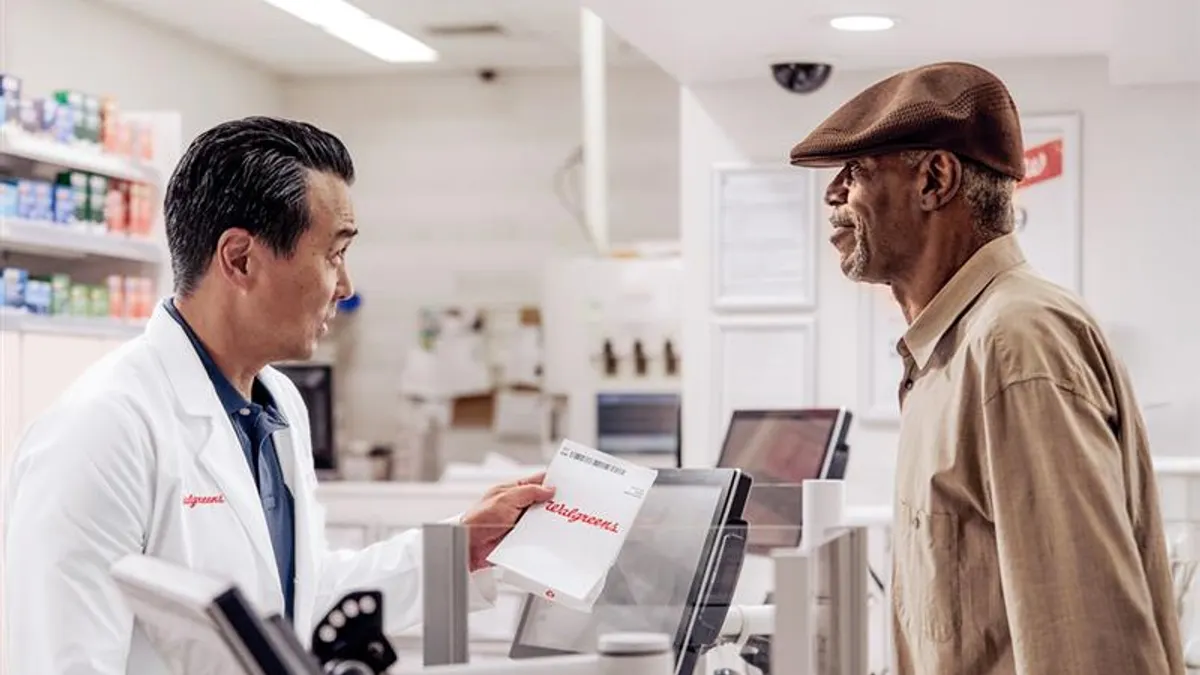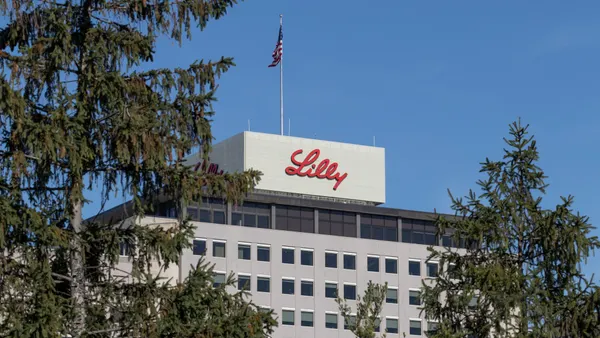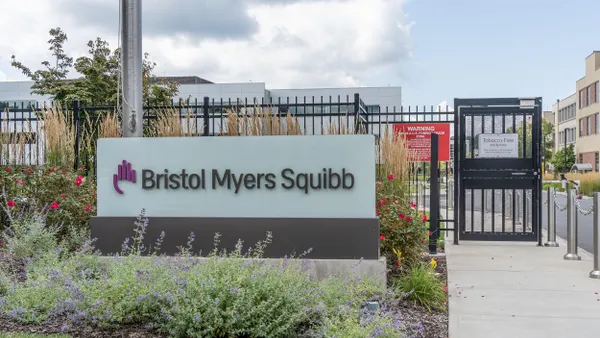Bringing a new medicine to market has long been an expensive and risky endeavor. Across the industry, the average cost of developing a new drug now exceeds $172 million, and the probability that a therapy entering Phase I clinical trials will ever achieve regulatory approval is less than ten percent. Even after a treatment has been commercialized, maximizing its accessibility—so that the largest possible number of patients can see the greatest possible benefit—remains challenging. Not taking medication as prescribed—also known as non-adherence—takes the lives of 125,000 Americans each year and costs the healthcare system as much as $300 billion for avoidable hospitalizations, emergency department visits and medical appointments.
By working with pharmacies to leverage their consumer intelligence, biopharmaceutical companies can overcome these challenges to drive improvements in patient experiences and care outcomes. Pharmacy providers can particularly provide drug developers with access to real-world evidence (RWE) and patient insights that help accelerate pre- and post-market research. They can further collaborate with biopharmaceutical companies to provide targeted patient engagement and support programs that help patients better manage chronic diseases. Pharmacies can also aid in clinical trial recruitment, enabling the enrollment of study participants whose demographics closely resemble those of the patients who will ultimately receive the treatment.
Consumer trust can drive better patient outcomes
Collaborating with a pharmacy like Walgreens can empower pharmaceutical companies to deepen and strengthen their relationships with patients. One recent survey showed that 83% of healthcare consumers have high levels of trust in their local pharmacist’s decision-making, while 86% said they’d like to see more clinical services within neighborhood pharmacies—things like blood pressure screening, telehealth consultations and preventative care—that go well beyond their traditional role of filling prescriptions. With more than 8,500 locations nationwide—one within five miles of the homes of approximately 80% of Americans—Walgreens has extensive patient access, and the numerous, frequent interactions between these patients and their local pharmacists help to build trust.
Not only do community-centered pharmacies offer biopharmaceutical companies unique opportunities to improve patient engagement, but their longstanding relationships with patients and consumers enable them to harvest meaningful insights that can improve treatments and overall patient outcomes. These insights span the entire product lifecycle, from early-phase clinical trial recruitment to launch and post-market research.
“We are a mission-driven company,” says Ramita Tandon, Chief Biopharma Services Officer at Walgreens. “Showing up for patients in our communities is part of our DNA. Our pharmacy care teams have personal, one-on-one relationships with more than 9 million consumers who visit our retail locations or take advantage of our online resources on a daily basis. We are building on these relationships to drive value, provide high-quality care and support last-mile enablement.”
Improving patient access and clinical outcomes
Walgreens has access to granular insights about local patient populations as well as a vast customer base mirroring the sociodemographic characteristics of the U.S. population as a whole. Because biopharmaceutical companies have long struggled to recruit clinical trial participants whose characteristics closely resemble those of all the patients who may eventually benefit from the new therapies, these insights are of great value.
Sponsors can use this intelligence to identify prospective trial participants on the basis of very specific inclusion criteria. They can also perform relevant and customized outreach to these prospective participants, using the channels that individual consumers prefer. These may include email and text messaging as well as in-person conversations with the local pharmacist.
Convenience and accessibility are major advantages when it comes to clinical trial recruitment, Jorge Fuentes, Senior Director of Healthcare and Clinical Analytics at Walgreens, explains. “Our extensive network of community pharmacies makes it easier for us to find the people who are able and willing to participate in trials. We’re able to identify the populations that are highly engaged with pharmacy services—and thus have a greater propensity to take part in research. We can also directly engage patients who could benefit from participating.”
Engaging and supporting patients throughout the care journey
Once a therapy is made available to the U.S. patient population, consistent engagement with that patient population is important for ensuring successful care outcomes. The trusting relationships that pharmacies maintain with patients makes it easier for them to deliver the kinds of programs and support services that meaningfully impact outcomes. Research has shown that personalized medication adherence programs incorporating reminders, educational materials and one-on-one pharmacist support can improve both adherence and outcomes. This is particularly beneficial in the management of complex diseases like cancer, where adherence is often a challenge because medications are expensive and adverse event rates are high.
Personalized support is particularly helpful for patients with chronic conditions who need to take a more active role in managing their health. Pharmacies like Walgreens offer digital tools, including mobile apps and online platforms, that deliver highly relevant content to patients. And community pharmacists can provide personalized health coaching, encouraging people to make beneficial lifestyle changes.
Pharmacies can also offer insights into prescription trends, payer coverage policies and demand levels for particular drugs. They can also conduct market research and surveys to gather first-person insights from patients and healthcare providers. Some are even exploring advanced technologies like pharmacogenomics and biomarker testing.
In addition, retail pharmacies support population health by ensuring that medications are available when and where they are needed. Walgreens, for instance, operates nearly 300 community-based specialty pharmacies to help improve patient access to limited-distribution drugs. Specialty pharmacies also allow for higher levels of provider engagement with patients who suffer from chronic, complex and rare conditions.
Ultimately, the high levels of trust that patients have in their community pharmacies—along with the convenience of having them right in the neighborhood—can drive greater patient engagement and improved health outcomes. When biopharmaceutical companies collaborate with a pharmacy like Walgreens, they gain access to meaningful intelligence that can drive better business decision-making throughout the process of developing and distributing life-saving medicines.
To learn more about biopharmaceutical solutions from Walgreens, visit us online.











